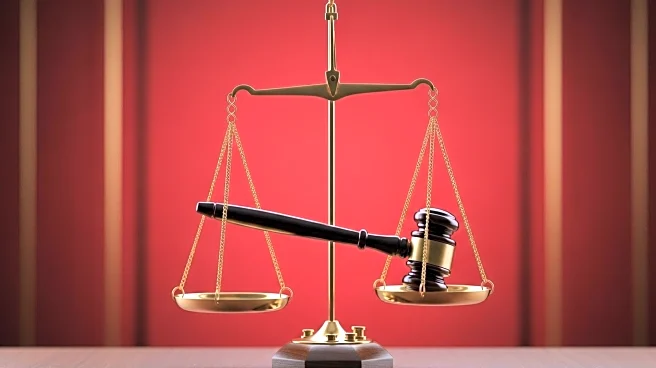What is the story about?
What's Happening?
In a significant development under President Xi Jinping's anti-corruption campaign, China's court has sentenced Tang Renjian, the former Minister of Agriculture and Rural Affairs, to death for bribery. The sentence includes a two-year reprieve. Tang was found guilty of accepting approximately $38 million in bribes during his tenure in various government positions. The Changchun Intermediate People's Court highlighted that Tang's actions caused severe damage to the interests of the state and the public, justifying the harsh sentence. Tang admitted to his crimes, expressed remorse, and returned the illegally obtained assets to the government. If he refrains from further crimes during the reprieve, the death sentence could be commuted to life imprisonment. Tang has been stripped of all political rights for life, and his private property has been confiscated.
Why It's Important?
This case underscores China's strict stance on corruption, particularly among high-ranking officials. President Xi Jinping's anti-corruption campaign, initiated in 2012, has disciplined over one million officials, reflecting a broader effort to maintain governmental integrity and public trust. The sentencing of Tang Renjian serves as a warning to other officials and highlights the Chinese government's commitment to rooting out corruption. The implications of this case may extend beyond China, influencing international perceptions of China's governance and potentially affecting diplomatic relations and foreign investments.
What's Next?
Tang Renjian's case may lead to increased scrutiny of other officials within China, as the government continues its anti-corruption efforts. The international community may watch closely to see if similar measures are applied to other high-profile cases. Additionally, the outcome of Tang's reprieve period will be pivotal in determining whether his sentence is commuted to life imprisonment. The case may also prompt discussions on the effectiveness and ethical considerations of such severe penalties in combating corruption.
Beyond the Headlines
The sentencing of Tang Renjian raises questions about the balance between justice and human rights within China's legal system. The use of the death penalty, even with a reprieve, may spark debates on its moral implications and effectiveness as a deterrent. Furthermore, the case highlights the cultural and political dimensions of corruption in China, where public officials are held to stringent standards. This development may influence global discussions on anti-corruption strategies and the role of governance in maintaining ethical standards.
















